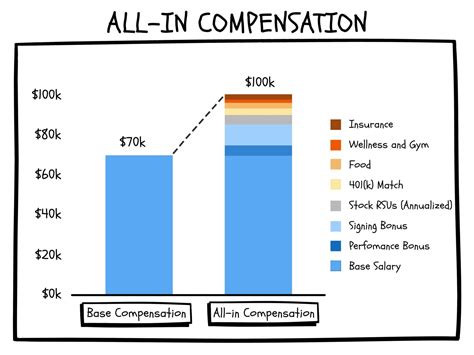Understanding Salary Ranges: Insights And Implications

As an employee, understanding your salary range is essential for making informed decisions about your career. A salary range is the minimum and maximum amount of pay an employer is willing to offer for a particular job position. It is important to understand the implications of salary ranges, including negotiating a fair salary, career growth opportunities, and job satisfaction. This article will provide insights into salary ranges and their implications.
What is a Salary Range?
A salary range is a range of pay that an employer is willing to offer to a candidate for a specific job position. This range is based on a variety of factors, including the job market, industry standards, and the candidate’s qualifications. A salary range typically includes a minimum and maximum amount of pay that an employer is willing to offer.
Why is Understanding Salary Ranges Important?
Understanding salary ranges is important for several reasons:
- Negotiating a fair salary: By understanding the salary range for a particular job position, you can negotiate a fair salary that is commensurate with your skills and experience.
- Career growth opportunities: Understanding salary ranges can help you identify career growth opportunities within your organization or industry.
- Job satisfaction: Salary is an important factor in job satisfaction. By understanding salary ranges, you can ensure that you are being paid fairly for your work, which can lead to greater job satisfaction.
Factors that Affect Salary Ranges
Several factors can affect salary ranges, including:
- Industry: Different industries have different salary ranges based on the demand for skills and experience.
- Location: The cost of living and demand for skills in a particular location can affect salary ranges.
- Experience: The level of experience required for a particular job position can affect the salary range.
- Education: The level of education required for a particular job position can affect the salary range.
How to Determine Your Salary Range
To determine your salary range, you can:
- Research: Research salary ranges for similar job positions in your industry and location to get an idea of what you can expect to be paid.
- Consult with a recruiter: A recruiter can provide insights into salary ranges for your industry and location based on their experience and network.
- Consider your qualifications: Your qualifications, including experience and education, can affect your salary range.
The Implications of Salary Ranges
Understanding the implications of salary ranges is important for making informed decisions about your career. Some implications of salary ranges include:
- Negotiating a fair salary: By understanding the salary range for a particular job position, you can negotiate a fair salary that is commensurate with your skills and experience.
- Identifying career growth opportunities: Understanding salary ranges can help you identify career growth opportunities within your organization or industry.
- Job satisfaction: Salary is an important factor in job satisfaction. By understanding salary ranges, you can ensure that you are being paid fairly for your work, which can lead to greater job satisfaction.
Conclusion
Understanding salary ranges is essential for making informed decisions about your career. By understanding the factors that affect salary ranges, how to determine your salary range, and the implications of salary ranges, you can negotiate a fair salary, identify career growth opportunities, and increase your job satisfaction.
FAQs
What is a salary range?
A salary range is the minimum and maximum amount of pay an employer is willing to offer for a particular job position.
Why is understanding salary ranges important?
Understanding salary ranges is important for negotiating a fair salary, identifying career growth opportunities, and increasing job satisfaction.
What factors affect salary ranges?
Factors that affect salary ranges include industry, location, experience, and education.
How can I determine my salary range?
You can determine your salary range by researching salary ranges for similar job positions in your industry and location, consulting with a recruiter, and considering your qualifications.
